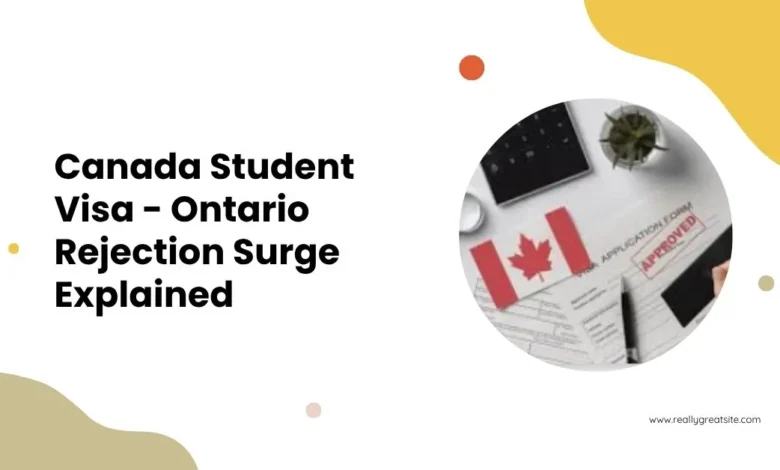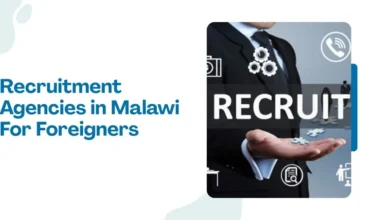Canada Student Visa – Ontario Rejection Surge Explained

The dream of studying in Canada has turned into a stressful and uncertain journey for many international students in 2025. With rejection rates climbing, particularly in popular destinations like Ontario, the excitement of an acceptance letter is too often followed by the disappointment of a visa denial. This wave of refusals, often stemming from seemingly small documentation errors or unclear study plans, can feel insurmountable.
But this setback does not have to be the end of your Canadian dream. By understanding the precise reasons behind these rejections, from insufficient financial proof to a weak Statement of Purpose, you can strategically rebuild your application, turning a previous refusal into a future approval.
Top Reasons for Visa Rejection & How to Fix Them
The refusal letter from IRCC will cite a specific paragraph of immigration law. The table below translates these common legal reasons into practical problems and solutions.
| Rejection Reason | What It Means | How to Fix It |
|---|---|---|
| Insufficient Financial Proof | Your bank statements don’t convincingly show you can afford tuition + living costs without working illegally. | Provide 4-6 months of bank statements with a clear, verifiable history of large deposits. Include a sponsor letter and their financial documents. |
| Purpose of Visit | The officer isn’t convinced you are a genuine student or that you will leave Canada after your studies. | Write a powerful Statement of Purpose (SOP) that logically connects your past studies, your chosen program in Canada, and your future career in your home country. |
| Weak Home Ties | You haven’t demonstrated strong economic, family, or social reasons to return home after your studies. | Provide evidence of family dependents, property ownership, or a job offer/strong career prospects in your home country. |
| Document Authenticity | Suspected forged documents or missing attestations for educational certificates. | Submit only verified and officially attested academic transcripts and diplomas. Never falsify any information. |
| Language Proficiency | Your IELTS/TOEFL score is below the requirement set by your Designated Learning Institution (DLI). | Re-take the test to achieve the required score before applying. |
The 2025 Landscape: Why Rejections Are Increasing
Immigration, Refugees and Citizenship Canada (IRCC) has implemented stricter, data-driven checks to maintain the integrity of the international student program. Key factors driving the increase in refusals include:
- Increased Scrutiny on Fraud: A crackdown on fraudulent admission letters and financial documents.
- Provincial Caps & Focus: Provinces like Ontario are under greater scrutiny to manage the volume of international students, leading to more selective processing.
- Genuine Student Assessment: IRCC officers are meticulously evaluating the logical consistency of an applicant’s academic and career trajectory.
How to Overcome a Visa Denial
A refusal is not the end of your journey. You can reapply successfully by taking these steps:
- Decode the Refusal Letter: This is the most critical step. The letter will specify the exact reason(s) for refusal under immigration law (e.g., IRPR 216(1)(b) for funds). Address every single point raised.
- Request GCMS Notes: If the refusal letter is vague, you can formally request the officer’s detailed notes. This provides invaluable insight into their decision-making process.
- Correct the Deficiencies: If it was a financial issue, provide more robust and transparent documentation. If it was a “purpose of visit” issue, completely rewrite your Statement of Purpose (SOP) to be more compelling and logical.
- Seek Professional Help: Consider consulting a Regulated Canadian Immigration Consultant (RCIC) who can professionally review your case and guide your reapplication.
Proactive Steps to Improve Your Approval Chances
Prevention is the best strategy. For a first-time application, ensure you:
- Start Financial Planning Early: Gather financial documents well in advance. Funds should be in your or your sponsor’s account for a considerable period (at least 4-6 months) to avoid looking like a “borrowed” loan.
- Craft a Powerful Statement of Purpose (SOP): This is your narrative. It must clearly explain:
- Why Canada? Why this specific college/university and program?
- Why this program? How does it build on your previous education and experience?
- What is your future plan? How will this Canadian education help your career in your home country?
- Double-Check the Document Checklist: Use the official IRCC checklist for your country. Do not assume; verify every requirement.
- Ensure DLI Compliance: Confirm your chosen institution is a Designated Learning Institution (DLI) and that your Letter of Acceptance is authentic and unconditional.
Conclusion
A visa refusal, while disheartening, is not a final verdict on your academic aspirations. The increasing scrutiny by IRCC in 2025 serves as a clear directive for applicants to be more thorough, transparent, and strategic than ever before. By meticulously addressing the specific reasons for your initial refusal, whether by securing verifiable financial documents, crafting a powerful and authentic Statement of Purpose, or demonstrating strong home ties you can transform a previous weakness into a compelling strength. Treat the rejection not as a stop sign, but as a detour guiding you toward a more robust and successful application. With careful planning and a proactive approach, your goal of studying in Canada remains entirely achievable.
Frequently Asked Questions
-
Why are so many Canada student visas being rejected
Many rejections are due to weak SOPs, incomplete financial proofs, and inconsistencies in academic intent.
-
Can I reapply after my visa rejection in Canada?
Yes, you can reapply by addressing the reasons mentioned in your refusal letter and submitting improved documentation.



